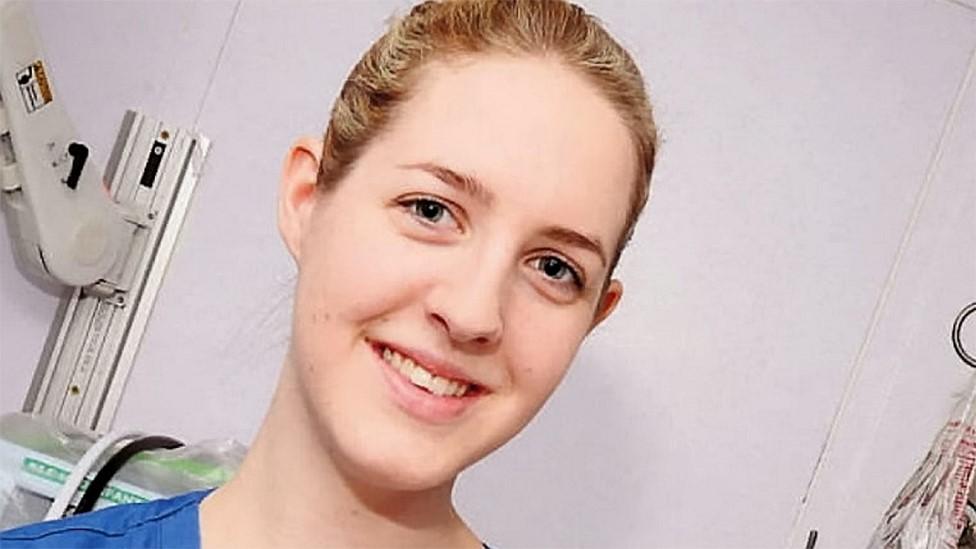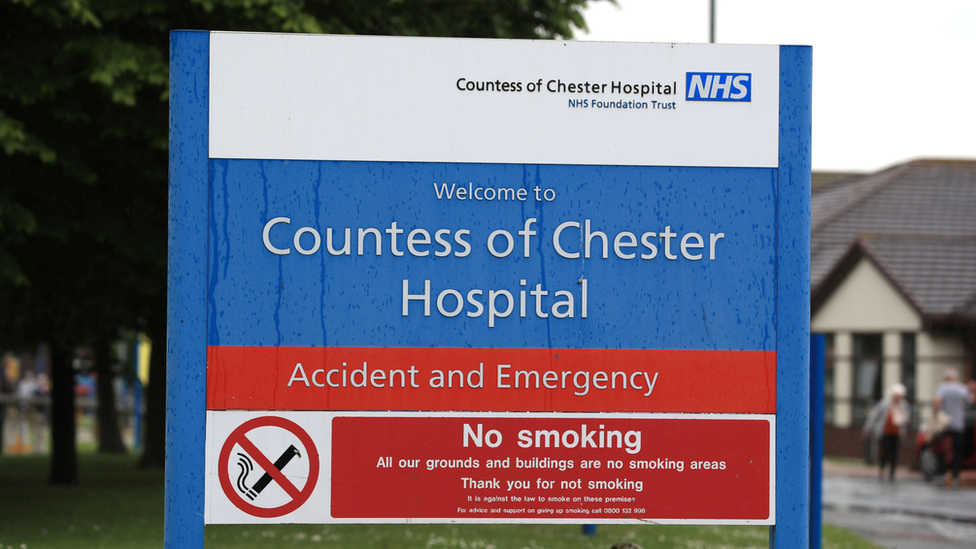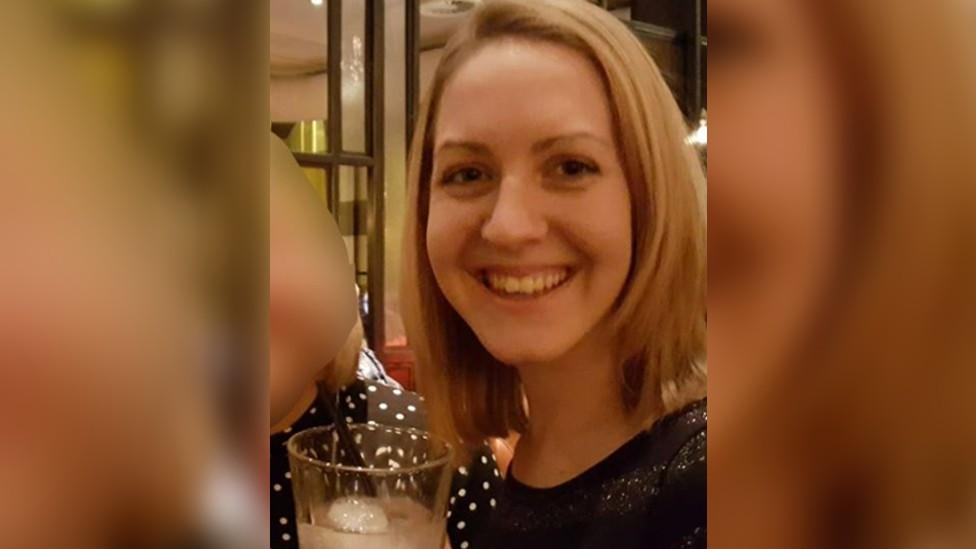Lucy Letby: Baby given adrenaline in bid to save her, jury told
- Published

Lucy Letby is accused of murdering seven babies and attempting to kill 10 others
A doctor has recalled how medics desperately administered five doses of adrenaline in a bid to save a baby, a murder trial has heard.
Lucy Letby, 32, allegedly injected air into the bloodstream of Child D at the Countess of Chester Hospital in 2015.
Dr Andrew Brunton told the court the baby needed urgent treatment three times on the morning of her death.
Ms Letby, of Hereford, denies murdering seven babies and attempting to murder 10 others between 2015 and 2016.
The court heard the registrar's notes showed that he was called "urgently" to attend Child D's cot side on the neonatal unit at about 01:40 BST.
Her oxygen levels had dropped and she had developed a rash, the jury was told.
His medical notes added: "Nurses noted she became extremely mottled, also noted to have tracking lesions dark brown/black across trunk."
He told the court he had called a consultant for advice as the rash was "completely unusual", adding: "I hadn't seen this before, the changes in the skin, I couldn't explain it."
An hour after treatment, his notes outlined how Child D's condition had "improved" and the rash had "completely disappeared".
But Dr Brunton was called to treat Child D a further two times that morning after the rash reappeared, jurors were told.

Five adrenaline doses were administered in 10 minutes in a bid to save Child D, the court heard
The court heard at 03:00 he was informed her oxygen requirements had risen again and the rash had reappeared.
Dr Brunton said: "I remember her being quite agitated and upset. This stuck in my mind as she had not been like that when I examined her before."
Child D recovered and he said he decided to withdraw CPAP (continuous positive airway pressure) respiratory support, as he thought at the time it may be the source of her agitation.
Medical notes show that at about 03:55, Dr Brunton received an emergency call to attend Child D for what would be the final time.
Dr Brunton's records show that five adrenaline doses were administered over the next 10 minutes.
"This was necessary because Child D was in effect dying in front of us," he told the court.
After a conversation with Child D's parents, CPR was stopped after 28 minutes.
When asked to summarise the events of that morning, he said: "From when I came in on my night shift there weren't any particular worries or concerns regarding Child D.
"By 01:40 to her death, Child D had dramatic deteriorations at different points.
"It was completely unclear to me why that was occurring.
"I've never seen a baby behave in that matter prior to this or after this."

Lucy Letby denies 22 charges against her
Ben Myers KC, defending Ms Letby, took jurors back through Dr Brunton's notes which showed that Child D required treatment on a ventilator in the days before her death.
He said Child D had breathing problems from birth and "nothing indicated" she would do well if taken off CPAP.
He asked the witness: "When you took the decision that she should come off CPAP, did it cross your mind it may lead to a deterioration?"
Dr Brunton replied: "Absolutely not.
"If we are trialling a baby off CPAP they can go back on it if we think they are not able to cope with it."
The court previously heard that Child D's mother was left waiting more than 50 hours for treatment after her waters broke early.
Mr Myers said it was important to look at the "whole clinical picture" when assessing Child D's health.
He previously told the jury there was more evidence that infection played a part in Child D's death and the hospital failed to provide adequate care.
Dr Joanne Davies, a consultant in obstetrics and gynaecology at the Countess of Chester, told the court that Child D's mother's wait for treatment "followed the guidelines" and was "not unusual".
She did however acknowledge there was a shortfall in the care of Child D's mother as an oral antibiotic was not initially provided after her waters broke but she said she doubted whether the antibiotic "would have had any effect in this case".
Mr Myers responded: "You may doubt, but you don't know do you?"
"I don't know," she said.
'Shocked'
The court later heard how Ms Letby "told off" a colleague who shouted for help when a baby's oxygen levels dropped.
Neonatal assistant Lisa Walker said she was "shocked" and "taken aback" when the nurse asked why she had sought assistance.
She said they were feeding infants in opposite corners of the room when an alarm monitor sounded at the cot where Letby was.
Miss Walker said the alarm indicated oxygen levels had fallen.
Prosecutor Philip Astbury said: "Why ask for help?"
Miss Walker said: "Because the baby was not picking up."
She said she felt "shocked because you can't have enough help in that situation".
"[I was] quite taken aback and shocked because it's something you would not expect a nurse to say," she added.
Miss Walker agreed with Ben Myers, KC, defending, that she could not remember the date of the incident, or the name and sex of the baby involved.
The trial continues.

Why not follow BBC North West on Facebook, external, Twitter, external and Instagram, external? You can also send story ideas to northwest.newsonline@bbc.co.uk, external
Related topics
- Published4 November 2022

- Published3 November 2022

- Published2 November 2022

- Published28 October 2022

- Published27 October 2022
